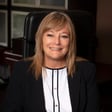Kahunas' Rituals and Energy Conservation
00:00:00
Speaker
The Kahunas who were the healers in ancient Hawaiian huna what would tell people and would do this process every night to disconnect from everyone because Even the people you love and are on good terms with can suck your energy
00:00:18
Speaker
can drain you even if you're just being a loving wife or mother or husband or sister and you're just being loving it can still drain your energy so they have you disconnect every night before you go to sleep.
00:00:33
Speaker
You want to transform yourself and improve your life.
Improving Life Through Hypnosis
00:00:37
Speaker
You long to help people. You wish to become healthier, happier, and more successful. This show is your opportunity to learn how to use hypnosis to make your life better. Each week, hypnotist Robbie Spear Miller interviews people who have already changed their lives in amazing ways with hypnosis.
00:00:57
Speaker
These models can help you discover your path to making the most of your life. If you want to learn how hypnosis can help you reach your goals, this show is for you.
The Power of Self-Forgiveness
00:01:10
Speaker
Often when we struggle to forgive, the person we need to forgive the most is ourselves. In this episode, you will learn inspiring real-life examples of how to forgive yourself and others, and how you may believe you are forgiving when you're really martyring yourself, and how to free yourself from this martyrdom. You'll also get a healthy perspective on human behavior to help you live from a place of forgiveness.
00:01:36
Speaker
Vicky Thomas is also going to tell us about her amazing passion project, which may change your life or the life of someone you love.
Vicky Thomas: Hypnosis and Ho'oponopono Expert
00:01:45
Speaker
Vicky Thomas is a master hypnotist society trainer and ho-oponopono expert. She is a published author and producer of a popular ho-oponopono audio program. For over 20 years, she has been helping people make their lives better and achieve more success with hypnosis.
00:02:03
Speaker
Sometimes what happens is people, especially if they're people pleaser type people or they tend to take the blame on themselves, is they'll allow some unhealthy behaviors to continue, whether it's them doing it to themselves, them not setting boundaries with others or being treated a certain way in life.
00:02:23
Speaker
And so because they're people pleasers or they tend to overtake responsibility for what happens, they take it in, right? They internalize it. They'll tend to pretend they forgave the person or want to believe they did. And then because of it, they won't set the boundaries and they'll let it happen over and over and over. So they're becoming a martyr for it instead of real forgiveness.
00:02:49
Speaker
So talk a little bit about the difference. I think that's an important thing for people to be aware of.
Confronting Death: Forgiveness and Acceptance
00:02:54
Speaker
Well, it's interesting. The most the most heartfelt, forgiving people that I found and this is something I do only rarely is people who are in death. Their death is imminent in the next few weeks. And I'll get two responses. Like I've given everyone
00:03:19
Speaker
or I don't have anything to be forgiven for. And I take them through the process anyway, because I think their heart is open at that moment. And that has been really profound. But those two things I'll get often is, well, I don't have anything to be forgiven for. And I'll just say, let's do it anyway. Let's just test it. Do it anyway.
Personal Responsibility and Healing
00:03:46
Speaker
You don't have to have a thing that you think you have to be forgiven for. And you don't have to take responsibility for anything. But I suggest that you take responsibility for any little piece of it. Like, even if you're just to the wrong place at the wrong time with a checkout person, or that person that cut you off on the highway, take responsibility for any little piece of it. Because that's you healing you.
00:04:16
Speaker
And setting boundaries is usually a different conversation. It's a different conversation. Because the whole martyr thing is pretty big. And most certainly I'm guilty of it. So yeah, that's a completely separate thing.
Inspiration from Forgiveness at a Funeral
00:04:37
Speaker
And I will talk to them about setting the boundaries. Because if they don't, these things will continue to happen over and over and over.
00:04:45
Speaker
That's right. So some people really need to have those happen in a way that's very closely related so that they learn how to be in life a new way so that they can take care of themselves. So for example, your story about Jim at the funeral, at that time he wasn't putting himself in harm's way with his dad. That was in the past. What happened was in the past. Right.
00:05:13
Speaker
Right, it was just done. And even Jim, in that moment, I think he gave up years of anger. Like he just like, what good is it going to do him now to hold on to anger? You know, is he ever going to get even? No, he's not a good person anyway. But I think the way it affected everybody else was really profound. Like,
00:05:41
Speaker
I think what went through minds was, oh yeah, I remember that time that I was rude or that I was obnoxious to my parents. I think their own stuff went through their head at that moment, not to take on the blame of what happened, but that they also had things. Maybe it was them losing their temper with their kids or whatever, but they also had things that they knew reflected in that moment.
00:06:11
Speaker
So if he was able to do it for his dad under those circumstances and people were witnessing that and getting that experience and that energy, then it made them see, oh, hey, it's possible for me to forgive this and forgive that. That might be big things or small things because he showed them what's possible. I think so. Yeah, I think so.
00:06:37
Speaker
I think that's why I included that story. In the story, I don't tell them who it is in the recording. But that's why I included that story in the recording, because that is such a big thing. And most people don't have big things to forgive. Like the woman at the campfire who said something. That's not such a big thing to forgive.
00:07:07
Speaker
but the way the anger exploded amongst a group was a big thing. Right, it was a great reaction. The reaction matters more than what actually happened. That's an important point, right?
Ho'oponopono: Boundaries and Direct Confrontation
00:07:19
Speaker
Because what happened could be big, it could be teeny weeny or anything in between, but your response to it is really what the thing that needs to be let go of. Yeah, yeah. And also, I guess one of the boundaries is,
00:07:38
Speaker
Scott had a post that really hit home about specifically that. One of the boundaries that has to be set is when you are angry at someone, you talk to the person. Or when someone has wronged you somehow, you talk to the person. Talking to anyone else is nothing. It's not going to help anything directly with that person. And Hoʻoponopono takes you directly in your mind with that person.
00:08:07
Speaker
And which is important because in real life that person may not be able to have a useful conversation with you. So a lot of people are in that situation where that person may never be willing to
00:08:23
Speaker
forgive or participate in apologizing or changing their behavior or they might keep doing it or hold on to the fact that they feel they were right. But we know in hypnosis, you can bring that person right in front of you and apologize. And that brings up
Making Amends: Beyond Mental Forgiveness
00:08:42
Speaker
another thought. I talk about three different kinds of wrongs. The first one is an unintentional, like an accident.
00:08:49
Speaker
like oh I stepped on somebody's toe or I don't know, I accidentally ran over your bike. It's an accident but you still need to apologize because you did something. You didn't know you were doing something that hurt someone. The second one is intentional but a small hurt, maybe a white lie. The third one is something that you intentionally did to hurt someone. And hoʻoponopono doesn't forgive you for
00:09:19
Speaker
something that you need to make amends for. If you need to make amends, you make amends. I leave that in there too. You don't just say, I love you, I forgive you, please forgive me in my mind. If you need to make amends, you need to make amends. That would be a boundary I think too.
00:09:39
Speaker
Pressure. Yeah. And that if somebody, if you believe somebody needs to make amends to you, they may or may not do it. So you need to help free yourself no matter what. Correct. Yeah. Why hang on to it? Why hang on to it when you know they're not going to make amends? Right. Why let them continue hurting you?
00:10:02
Speaker
or controlling you, really. Yeah, whether they meant it or not, and it doesn't even matter who's right or wrong, because a lot of this falls into a gray area of difference of opinion, difference of views. It's not necessarily clear cut. Exactly, exactly. Good point of view.
00:10:22
Speaker
Yeah, good. So we covered some really important themes around forgiveness and what's possible for
Breaking Patterns with Spiritual Forgiveness
00:10:29
Speaker
you. So anybody out there who feels stuck and this could be stuck in running the same patterns over and over that are hurting you but maybe originated with something that happened long ago. Maybe you're not even connecting one thing with the other but you're stuck in some way.
00:10:46
Speaker
or you do know that you need to forgive someone else or yourself, this will help you, this process will help you learn how to actually do that. Because there's one thing to know and understand, and a lot of people really go a long way to understand their problems, or they read every self-help book out there, right? Or they go to therapy and review it and, you know, get some insight into it. And none of that actually changes it. It's through this
00:11:14
Speaker
process that spiritual and energetic and in your senses and emotional that the actual shifts happen. So if you see something in your life that you believe this would benefit you
00:11:27
Speaker
Let me say that again. So if there's something in your life that you see needs to shift or change, this would really benefit you. And what Vicki was saying earlier is really, it's a good thing for everybody to learn because somewhere, somehow, we all need to let go of emotions and connections, unhealthy connections to things in life. So I think it's a very worthwhile thing for people to learn. So in closing on that theme,
Daily Disconnection: Reclaiming Energy
00:11:57
Speaker
the Kahunas who were the healers in ancient Hawaiian Huna would tell people and would do this process every night to disconnect from everyone because even the people you love and are on good terms with can suck your energy.
00:12:15
Speaker
can drain you even if you're just being a loving wife or mother or husband or sister and you're just being loving, it can still drain your energy. So they have you disconnect every night before you go to sleep. I think that's amazing. Like to me, it puts my energy back and like I actually sleep better when I disconnect from everyone good or bad through the day.
00:12:43
Speaker
And it's a great way to get perspective and have more choice in your life because then when you reconnect, you're choosing it based on who you are now and how you see the world now.
00:12:56
Speaker
Yeah, well, and think about this, we work every day with people who have this problem or that problem and some of them are upset and some of them are not and some of them are just moving forward, but we don't really need to carry their energy either, whatever that is. As much as we care about our clients, when I go home at night, I want to be home and I want my energy to be home.
00:13:20
Speaker
especially for those people who are empaths or get really caught up in other people's energy. I've seen a lot of clients and students who describe feeling exhausted because they get pulled into other people's stuff. And as a hypnotist learning how to do that so that we don't get too caught up in our client stuff, this is a very important skill to have to be able to do this and do it as a ritual on a regular basis so that we
Clearing Mental Clutter with Ho'oponopono
00:13:46
Speaker
can... You know what, I'll add another thing. As a hypnotist, when I do that,
00:13:50
Speaker
I really don't think of my clients when I leave, but when I do Ho'oponopono, later on a thought will pop in about a client and it's usually very pristine and pure about something that they need. So I just go jot it down so I'll remember to cover it with them. But it's not cluttered with all of the other stuff about them. It's just one thought.
00:14:16
Speaker
So it almost clears out the cobwebs and you can see. Absolutely. And then you're able to powerfully know what to do next. It is. That's how it works for me. Yeah. Yeah.
00:14:29
Speaker
Yeah, awesome. Isn't that cool? Yeah, it is cool. Years ago, I had a client who was from, I believe he was from Australia, and I taught him ho'oponopono. And he said to me, I know this, my family does this. He came from an indigenous family. He was from Australia, and it was familiar to him from his family spiritual practice.
00:14:50
Speaker
And so I just wanted to know, I know you mentioned that you trained in New Zealand. So what do you know about, I think it's really interesting that it's in like Hawaii, New Zealand, Australia. What do you know about? Well, originally, canoes from Hawaii went to New Zealand, and possibly Australia. And the Maoris, who are also indigenous, I got to study in a Maori village, like in their temple and
00:15:21
Speaker
It was amazing. Jim and I stayed there for a week and studied with like their chieftains. So it's all very connected. The Hawaii, New Zealand, Australia, definitely very connected. That's all I know. Their spiritual customs are similar because there was travel back and forth and they influenced each other. Yes. Yeah. Originally, King Kamehameha was like a warrior.
00:15:50
Speaker
of Hawaii that really thought he was going to take over the world. And he sent canoes out to New Zealand. And so some of that is overlapping. Who knows? Originally, like before, 2400 years ago, we don't even know that we only have pictographs now that say that. And yeah. Okay, well, that's interesting. It's starting to fill in the blanks for me about all this. So that's cool. It's very, it's a very interesting culture. Yeah.
00:16:21
Speaker
Yeah, so there's so much ancient wisdom coming from there. Yeah, I like there is so much and like, as you're talking about that, I'm like, yeah, yeah, I studied that. That's true. Sometimes we get so caught up in the practice of what we're doing that we forget about the background that we learned about it. So it becomes so it becomes so
00:16:47
Speaker
every day. It's like a little kid that learns to pray at their bed every night. It becomes almost redundant, the basics of why we're doing it.
Authentic Practice of Ho'oponopono
00:17:00
Speaker
But I think Ho'opono brings that back to a real day-to-day, this is what happened today process, or this is what I remember that really upset me process, instead of just being about a rotation of words.
00:17:17
Speaker
It's a way of life and really believing it and doing it for real instead of going through the motions is really what you're referring to, right? We want it to be like experience. So like you can eat something and really taste it and experience it or you can just, you know, chew it and swallow it and be distracted and not even notice. So when people do it. I think that's true in every
00:17:44
Speaker
every religion, every non-religion, just the habits that we go through in the daytime. So making it real is about really focusing on what you're doing, you know. Making it meaningful to you.
00:17:57
Speaker
Yes, all the hypnosis recordings. Like lately, my favorite to play for people has got what falls sabotage armor. And it's actually a weight loss recording, but my smokers love it. My stressed people love it. They'll go, oh my God, that was so profound. I'm like, yeah.
00:18:16
Speaker
Yeah, I use that one with all kinds of people too. So yeah, the more we generalize and we look for where it does apply and where it does help us the easier it is to be connected. Yeah, that's why I said mine has such a big umbrella. I really thought about those words, but they really did flow easily when I was writing it.
00:18:39
Speaker
Yeah, awesome. Well, thank you. This was really interesting and I think very helpful for our listeners. So I appreciate you being here and we'll see you next time. Thanks, Robbie. So Vicki, you mentioned that you have a passion project. I'm really curious to hear about it because this is my first time learning about it.
Vicky's Heartbeat Recording Project
00:18:58
Speaker
So go ahead and share it with the audience.
00:19:00
Speaker
So, this actually started in 2016 when, again, my husband, he seems to be like all of my stories, but he was having heart problems.
00:19:14
Speaker
Almost every day with my clients, I say, you know, your subconscious mind beats your heart and it breathes you. I mean, if I had to remember to breathe, I'd be passing out seven or eight times a day. If I had to remember to beat my heart, that scares me. So he's having heart problems and he did have to have some processes like the one where they shock your heart to stop it and then they bring it back. Oh, no, they shock it back to life anyway.
00:19:38
Speaker
Um, it's called cardioversion very common procedure, but it's still scary for the person in the linear So I said to him, you know, I say this every day Your subconscious mind beats your heart. So why don't I make a recording for you?
00:19:53
Speaker
about the heartbeat and retraining your subconscious mind to beat your heart correctly. Cause I'll tell you, Robbie, I put my head on his chest and I swear instead of going, it was going, it's going that fast. It was like, oh my God. So he did have, I did not stop him or ask him or even think he should not do the things with the cardiologist that he needed to do.
00:20:21
Speaker
But I did create this heartbeat recording and it has a heartbeat in the background instead of music. And it asks your subconscious mind to retrain your heart to beat like this. And I checked the beat with a cardiologist to make sure it was a correct heartbeat. And she said, absolutely. And he went through his processes and they said, most people that have the cardio version have to come back every couple of years and have it done. And, um,
00:20:51
Speaker
Just moving forward to now, because he's been using that recording, he doesn't use it every night but every once in a while, instead of all the cardiology medicine that he's supposed to be taking and having to go back over and over again and having to do, his heartbeat is absolutely normal, his blood pressure is absolutely normal, and he takes only
00:21:14
Speaker
One half of one prescription like at the first time he had it they wanted like six different prescriptions maybe ten It was ridiculous. So he takes one half of the smallest dose of a blood pressure medication and his blood pressure is normal and Every cardiologist that he's seen over these few years have said what are you doing?
00:21:35
Speaker
This is not normal. The fact that you're normal is not normal.
Hypnosis in Medical Care
00:21:39
Speaker
And so it's now my passion project. I have shared it with several cardiologists. They send me their clients. So they're still under medical care. It's not a replacement for medical care, but it is really changing some things out there in the world with people with heart problems.
00:21:59
Speaker
So exciting. Wow, that's amazing. That's huge. Yeah, it would be awesome if you can get a doctor to do some kind of clinical trial. Actually, I do have a doctor going to do be doing some testimonials and, and stuff. Yeah.
00:22:18
Speaker
Yeah, very cool. Yeah. And I'll be speaking this at the National Convention, just a one hour presentation. So should be interesting. Yeah, that's awesome. And we're not doctors, we're not making any medical claims. But isn't it cool when you discover that there are these totally natural things we can do to help our bodies function better? It's really pretty amazing. It is. It's amazing. Like,
00:22:48
Speaker
I'm really dumbfounded at how well it worked. I thought it'd be just something to relax him, but it's good, yeah. Yeah, that's awesome. Good for you. Like I said, the feedback from the cardiologist is excellent. Whether they're willing to put that in writing, I don't know, but I do have a medical doctor who refers lots of clients to me who is probably willing to say something about it. Right.
00:23:16
Speaker
Like they have to be careful too about their licensing and what they say. So we'll see. Of course, of course. Yeah. Yeah. But it's, it's totally natural and you can do it and do everything your doctor tells you. So you have only, you can only gain and the least that will happen. I would say it can't hurt. All it can do is give, yeah, it can't hurt. And all you should do is try it and see if it's right for you. So.
00:23:44
Speaker
And if their doctor sends them here, it's that much more powerful. Very cool. That's my passion project. All right. Well, thanks for sharing. That's pretty fascinating. So tell people how they can reach you if they want to find out more about how you can help them.
00:24:03
Speaker
Okay, I'm Dr. Vicki Thomas with Revit Up Hypnosis. My website is www.revituphypnosis.com and my phone number is 661-209-2632. I'm on Facebook. Most of the social media I'm on somewhere.
00:24:24
Speaker
Right. And tell people what kind of doctor you're on because you're not a medical doctor. So I'm a doctor of clinical hypnotherapy.
Vicky Thomas' Credentials
00:24:32
Speaker
I got that degree from American Pacific University in Hawaii, which no longer offers that degree. So don't go chasing it because they don't give it anymore. But it that's where I got it in 2008.
00:24:45
Speaker
Cool. All right. And for people who want to learn more about hypnosis training, we have lots of free resources and other learning experiences at hypnosistrainingcanada.com. When you're ready to come for the live training experience, you can call 800-971-577 for to set up a free screening. And Vicki Thomas also trains people so you can look at her website as well for training opportunities. Yeah.
00:25:15
Speaker
Thank you, Robbie. Thank you, Becky. Join us for the next episode of the Hypnosis Show podcast where we will learn about how health professionals such as naturopaths, nutritionists, chiropractors, massage therapists, medical doctors, and others can use hypnosis for their clients to have better results.
Upcoming: Health Professionals and Hypnosis
00:25:35
Speaker
To find out more about how hypnosis can help you or what it takes to become a professional hypnotist, visit HypnosisTrainingCanada.com. Remember to click the button subscribe, share the podcast with a friend, and please leave us a review so you can help others benefit from the podcast too.
00:25:55
Speaker
Until next time, you've been listening to the hypnosis show with Robbie Spear Miller. Tune in next time to learn more about how you can change your life with hypnosis. And if you are interested in learning more about training opportunities, go to hypnosistrainingcanada.com and schedule a free consultation.

















